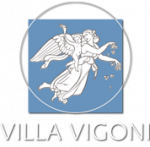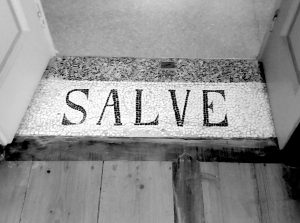Events 2017

Screening of “Crossed Gazes – Identités Narratives”
November 17, 2017; 17h – 22h
“L’exilé ne peut ignorer la scission avant/après, fragmentation structurante pour sa personnalité… Pas d’expérience exilique sans passage de frontière, effectué ou futur, et mémoire de ce passage. Tout exil, néanmoins, est un exil intérieur dans la mesure où son expérience, avant de toucher le corps déplacé, imprime la marque physique de la déchirure, d’une exclusion vécue d’abord dans l’intériorité, une conscience avant une condition.… A ce titre l’exiliance est d’abord l’expérience des frontières intérieures : le sujet intègre ce qu’il doit (dé)passer, découvre de nouvelles configurations du monde, les apprend, les traduit, les transforme.” (Alexis Nouss, La condition de l’exilé, 2015)
As part of the “Mär sinn Escher” initiative, the MIS will screen “Crossed Gazes – Identités Narratives”, as well as “Wallah – je te jure” on Friday, 17th November 2017 starting from 17h00 in the Kulturfabrik in Esch/Alzette.
Programm:
17h00-20h00 – Loop projection of « Crossed Gazes »
19h00 – Welcome Drink
20h00 – Projection of « Wallah – je te jure » by Marcello Merletto, in presence of the director.

FLIGHT – Border – Integration (1): Colloquium-Series on the Phenomenon of Displacement in Europe in conjunction with Villa Vigoni
October 5 to 7, 2017
 The first colloquium in the series created by MIS in conjunction with ‘Villa Vigoni’ tackles the topic of FLIGHT and its connection to border and integration from a literary and philosophical perspective.
The first colloquium in the series created by MIS in conjunction with ‘Villa Vigoni’ tackles the topic of FLIGHT and its connection to border and integration from a literary and philosophical perspective.
The concept of “displacement” has had a lasting effect on the French post-war philosophy, from Lacan to Barthes, from Derrida to Deleuze. This concept, in turn, is based on Freud’s theory of displacement, which, in its origin, behaves like a “traveling concept” in the sense of Mieke Bal. Its further differentiation in American anthropology, with the displacement sometimes transformed from an ideology of difference into one of indifference, opens the opportunity for a series of colloquium to build the European notion of tradition and to conceptualize it conceptually for the theme of the confernce.
Within the semantic and conceptual framework of displacement, the motive of flight will be the first subject of closer analysis. The current migration crisis suggests the need to reflect on forms of “narrative identity” (Paul Ricoeur, 1990) of dislocated people and on the “condition of exile” (Alexis Nouss, 2015) and less on migration in phenomenological terms. Because it is on the uniqueness of each fate on which in the course of our first colloquium the focus should be placed, with special consideration of questions which move in the field of literature, art, history and philosophy. People on the run are primarily subjects of a search in which they have to overcome resistance and are dependent on support; they are people with very different experiences, abilities and competences, with different emotions (fears, hopes, resignations), and therefore they are above all: individuals. The phenomenon of flight is also part of a general social development in which everything seems to flow- as an expression of that “fluid society” (Bauman) thaton one handdrives the exchange of people and goods, but on the other gives the feeling that, through the construction of new geographic and mentalboundaries, limitsto the globalization’s desire for a global understanding between nations are existing, which endon walls that are being built at the national branch offices and in the minds of the people.
The presentations (30 minutes with a 15-minute discussion) are based on the following priorities:
Literature:
The discursiveness of flight can reveal the contents of the unspoken, for example, the flight from Egypt (Paul Ricoeur 1997), as far as the symbolic memory of flight and expulsion and the desire for hospitality, is constitutive. However, questions should generally be dealing with the prerequisites and the literary treatment and processing of this theme in history, while considering the present status quo. When and why is literature interested in this topic? Who is interested and to whom is it addressed? Which aesthetic means do the texts use in their description? And what knowledge and / or ignorance about flight, its motivation, movement and its goal, is in them and / or is mediated by them?
Art and history:
Thematically relevant in these areas are, inter alia: the flight of Greek writers from Constantinople before the persecution of the Ottomans (1453), the “emigrants” during the French Revolution, the states and homeless in the context of the Russian Revolution; the flight as a result of the aesthetic-ideological expulsion (e.g. the so-called degenerate art in the Nazi period); the cartoonists and photojournalists in the course of the current Muslim debate, etc.
Philosophy:
For the theoretical foundation of the topic and as a contribution to the philosophy of flight, one can among other relate to Hannah Arendt’s essay We Refugees (1943) or to Giorgio Agamben’s relevant works, although further connection possibilities can be taken to Esther Peeren (The Spectral metaphor, 2014) in order to discuss the question of whether and to what extent refugees as worldly phantasms and ghosts are voice-borne without voice, which “damage” our comfort zone (Derrida, Specters de Marx, 1993).
Project coordinators
Luxembourg: Dieter Heimböckel, Nathalie Roelens, Christian Wille
Villa Vigoni: Matteo Scotto
Contact:
Christabel Marrama (christabel.marrama@uni.lu)

MIS Symposium 2017 – Multilingualism as Migration
July 3 & 4, 2017
The fourth Key Area MIS symposium discusses multilingualism as cross-border movement. Texts and the historical and cultural contexts to which they refer are examined as settings for interaction between various linguistic processes.
The symposium will take place on 3-4 July 2017 and is aimed at scholars in literature, linguistic, social sciences and cultural studies.
Rainier Grutman (University of Ottawa) and Sandra Vlasta (Johannes Gutenberg Universität Mainz) are invited as keynote speakers.
The fourth symposium organised by the Key Area for Migration and Intercultural Studies (MIS) at the University of Luxembourg wants to describe multilingualism as migration. It is a matter of multilingualism as variety of methods for the generation of significance and as border-crossing movement of linguistically or culturally marked elements.
This movement is often linked to the movement of people but it can also be medially conveyed. In this respect, migration can shape different forms of movement and different directions and degrees of fixation.
Describing multilingualism as migration enables to view the linguistic and cultural elements not as fixed, well-defined units but rather to understand and describe them as entities in motion.
In addition, one can interpret texts and the historical and cultural contexts to which they refer as the setting for interaction between various linguistic processes.
The Symposium is open to the public | Registration requested | The working language is English
Program
July, 2017
13:00 – Introduction and Keynote Lecture
Introduction
Till Dembeck and Jeanne E. Glesener (Luxembourg)
Keynote Lecture: Oder bunun anlamı was? Multilinguism as Movement in Migration Literature
Sanrdra Vlasta (Mainz)
14:30 – Coffee Break
15:00 – Panel 1: Migration of Words, Translanguaging and Lexiculture in Migration Literature
East-West Migration “between” Words and Ideograms in the Chinese-Francophone Novel
Fiorella Di Stefano (Siena)
Travel Motifs and Translation in François Cheng’s Translingual Novels
Shuangyi Li (Lund)
Migrating words: stylistic and semantic functions of ‘foreign’ words in modern German literature
Jana-Katharina Mende (Vechta)
16:30 – Coffee Break
17:00 – Panel 2: Language Contact and Multilingual Communication Practices in Specific Social Contexts and Communities
Diaspora Linguistics
Adams Bodomo (Vienna)
Emergence and Social Meaning of an In-Group Variety in a Multilingual Coalmininng Community
Nantke Pecht (Maastricht)
Between Code-Switching and Mixed-Code
Stefaniya Ptashniyk (Heidelberg)
July 4
9:30 – Keynote Lecture
Keynote Lecture: The Spectre of Sir Walter Scott: Heterolingual Quotes and their Complicated Migration Patterns
Rainier Grutman (Ottawa)
10:30 – Coffee Break
10:45 – Panel 3: Transcribing Translingualism
Multilingual Exilic Literature and First Language Attrition
Tomás Espino Barrera (Granada)
“How to Tame a Wild Tongue”: Translanguaging the Borderlands
Astrid M. Fellner and Eva Nossem (Saarbrücken)
11:45 – Coffee Break
12:00 – Panel 4: Linguistic Landscapes and Multilingualism in the Baltic States and the Ukraine
Linguistic Context in Post-Soviet Countries: Case Study on the Baltic Countries and the Ukraine
Maryna Logvynenko (Metz)
Multilingualism in Riga Throughout Times Through the Lens of Migration
Heiko F. Marten (Riga)
13:00 – Lunch Break
14:00 – Panel 5: Concepts of Linguistic Nomadism, Border-Crossing and Untranslatability
Nomadizing. Multilingualism as Migration
Diana Hitzke (Gießen)
Showing Borders: Uljana Wolfs Falsche Freunde (2009)
Brigitte Rath (Innsbruck)
… s’arrête ? je: Framing Heimat in Verena Stefan and Nathanaël
Elisabeth Tutschek (Montréal)
Registration is closed
Concept and organisation: Till Dembeck, Jeanne E. Glesener and Christian Wille
With support of the Institut für deutsche Sprache, Literatur und für Interkulturalität, the UniGR-Center for Border Studies, the Institute de langue et de littératures luxembourgeoises, the Instituts d’Études Romanes, Médias et Arts and the Faculty of Language and Literature, Humanities, Arts and Education.

2017-2019 collaboration project FLIGHT – BORDER – INTEGRATION launched
The Key Area MIS in conjunction with ‘Villa Vigoni’ has organised a colloquium series tackling issues of European integration in the face of crisis scenarios and ongoing migratory movement. Social science and cultural studies scholars from Luxembourg, Italy and other countries will be meeting regularly to discuss this subject up until 2019. The focus of the first colloquium (2017) will be the reasons for flight from a literary and philosophical perspective.
The Key Area MIS in conjunction with the German and Italian centre of excellence ‘Villa Vigoni’ has organised a three-year colloquium series looking at the phenomenon of displacement in Europe. The subject is European integration in the face of geopolitical upheaval, crisis scenarios and ongoing migratory and refugee movement. These interdisciplinary colloquiums are being coordinated by the Key Area MIS at Lake Como and will bring together selected social sciences and cultural studies scholars from Luxembourg, Italy and other European countries.
The starting point for the colloquium series is the interrelated topics of flight, border and integration, each of which in turn will serve as the point of departure for a critical analysis. In addition, the disciplinary perspective will change for each colloquium, enabling a broad examination of urgent issues relating to migration using both a synchronic and a diachronic approach.
Colloquium 1 (2017): FLIGHT – Border – Integration
6-7 October 2017, Villa Vigoni
The first colloquium in the series tackles the topic of flight and its connection to border and integration from a literary and philosophical perspective.
Download Program
Colloquium 2 (2018): Flight – BORDER – Integration
2018, Villa Vigoni
The second colloquium in the series tackles the topic of border and its connection to flight and integration from a geographical and political perspective.
Colloquium 3 (2019): Flight – Border – INTEGRATION
2019, Villa Vigoni
The third colloquium in the series tackles the topic of integration and its connection to flight and border from a social and linguistic perspective.
Colloquium participation is by invitation.
A project as part of the cooperation agreement between the University of Luxembourg and the German and Italian centre of excellence ‘Villa Vigoni’.
Project coordinators
Luxembourg: Dieter Heimböckel, Nathalie Roelens, Christian Wille
Villa Vigoni: Matteo Scotto
Project secretary and contact
Christabel Marrama (christabel.marrama@uni.lu)

Film screening: Wallah – Je te jure
March 1, 2017
The Key Area MIS invites you to attend a film screening and discussion with one of the filmmakers. On 1 March 2017 we will be screening a documentary film on the often tragic journey of the men and women who travel the West African migratory routes to Italy. The film was roduced by the International Organisation for Migration and last screened at the Global Migration Film Festival.
The Key Area MIS invites you to a public film screening on 1 March 2017 at 4 p.m. With Giacomo Zandonini in attendance, we will be showing the documentary by Marcello Merletto Wallah – Je te jure (2016) which tells the story of the men and women who travel the West African migratory routes to Italy. The film was produced by the International Organisation for Migration (IOM) and takes us into the villages of Senegal, via bus stations and ghettos in Niger overrun by drug trafficking, to Italy. The migrants are willing to pay whatever price to reach Europe – Wallah. However, some portrayals show people who are tired of the hardship and returning home. The discussion offers an opportunity for exchange with one of the filmmakers.
1 March 2017, 4 p.m. – 6 p.m.
University of Luxembourg, Campus Limpertsberg
Bâtiment des Sciences, room 0.03
The event is public and free of charge. Please register by 20 February 2017 at the latest: charlotte.dujardin@ext.uni.lu (Charlotte Dujardin)
Programme 4 p.m. – 6 p.m.
Introduction to the film
Film screening
Discussion with Giacomo Zandonini
Drinks reception
More information about the film
Production: IOM Niger (International Organisation for Migration)
Director and cinematographer: Marcello Merletto
Production assistants: Elisabetta Jankovic, Giacomo Zandonini
Editor: Silvia Borroni
Graphics: Claudio Corrias
Music: Franco Battiato, Bombino, One Step
Original languages: French, English, Italian, Wolof
Subtitles: French/English/Italian

Conference – Afghanistan/EU – Ethno-religious conflicts and asylum policy
January 31, 2017
The recently established agreement between Afghanistan and the EU has brought about a public debate in Luxembourg and other EU member states. The Key Area MIS contributes to these debates by co-organizing on 31 January 2017 the evening conference “Afghanistan/EU – Ethno-religious conflicts and asylum policy”. The conference comprises two lectures followed by a roundtable discussion bringing together scholarly reflections, political reasoning, public claims and individual experiences.
Article on the conference in the Luxemburger Wort.
The recently established agreement between Afghanistan and the EU, the so-called „Joint way forward on migration issues” (Kabul, 2 October 2016) has brought about a public debate in Luxembourg and other EU member states. Apart from the question of whether Afghanistan can be considered a “safe third country”, the agreement raises general issues on asylum policy, for example the problem of tying together foreign aid and collaboration in deportation/remigration measures.
The Key Area MIS – Migration and Intercultural Studies (University of Luxembourg) will contribute to these debates by co-organizing with the platform “Afghanistan is not safe, Luxembourg” on 31 January 2017 an evening conference on these topics. The aim of the conference is to bring together different perspectives and understandings – scholarly reflections, political reasoning, public claims and individual experiences.
The conference on 31 January 2017 comprises two lectures followed by a roundtable discussion.
Program
Playing the Ethnic Card: On the Ethnicization of Afghan Politics
Prof. Dr. Conrad Schetter (University of Bonn, International Center for Conversion)
The EU-Afghanistan joint way forward on migration issues – legal aspects and political discourse
Agnes Rausch (Honorary counsellor of state, member of Reech eng Hand)
Catherine Warin (University of Luxembourg, president of Passerell asbl)
Roundtable discussion
Prof. Dr. Conrad Schetter (University of Bonn, International Center for Conversion)
Agnes Rausch (Honorary counsellor of state, member of Reech eng Hand)
Cathérine Warin (University of Luxembourg, president of Passerell asbl)
Jawid Modasir (Afghan refugee in Luxembourg)
Prof. Dr. Harlan Koff (University of Luxembourg, Social Sciences-Migration Studies)
N.N. (representative of the Ministry of foreign and European affairs)
Moderation: Ines Kurschat (D’Lëtzebuerger Land)
Venue
University of Luxembourg
Campus Belval, Maison du Savoir, room 3540
2, avenue de l’Université
L-4365 Esch-sur-Alzette
GPS: 49.504839 | 5.948214
Languages and contact
The conference language will be English with simultaneous translation into Farsi and French.
For further information, please contact Elisabeth Boesen (elisabeth.boesen@uni.lu).
Organizers: Key Area MIS – Migration and Intercultural Studies (University of Luxembourg) & Platform „Afghanistan is not safe, Luxembourg“

